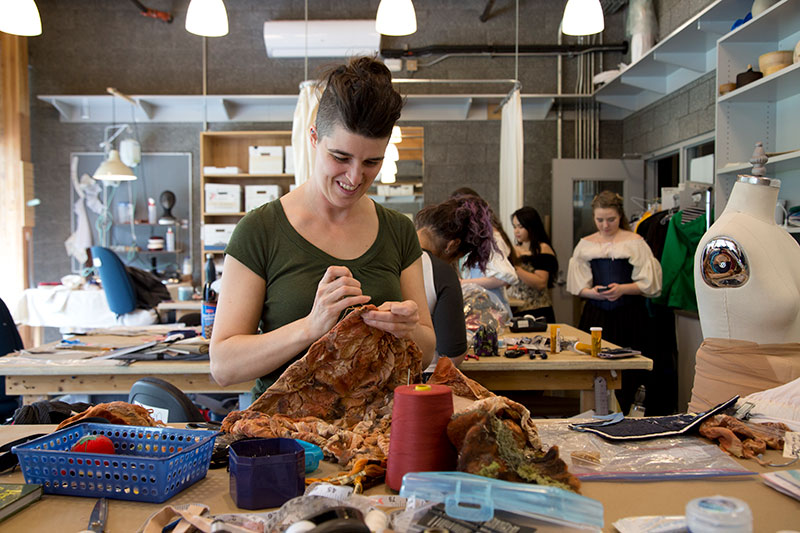Important dates
Early applications open: October 1, 2024 - January 15, 2025
Late applications open: January 17, 2025 - April 1, 2025
Faculty
Fine & Applied Arts
The two-year, full-time Costuming for Stage & Screen Diploma teaches students the technical and creative aspects of costuming for theatre and film.
If you've ever watched a TV show, play, concert or film and been blown away by the outfits and style of the actors, a career in costume design is for you.
You'll learn costume history, textiles, wardrobe management, cutting and construction techniques while gaining hands-on experience working on campus theatre productions and student film projects.
With productions in B.C.'s film industry in full swing again, graduates of the costuming program are well-qualified for entry-level positions in motion picture and theatre costuming departments.

Design beautiful costumes for TV, movies and plays
For two decades, this intensive costume design program has been training costume designers for the film, television and theatre industries. You could be next.


